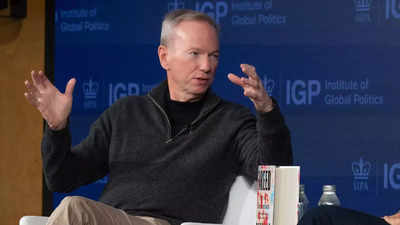
During a recent lecture session at Stanford, former Google CEO Eric Schmidt expressed his belief to the students of Standford that the tech company that will emerge victorious in the AI era will not be his previous employer, Microsoft, or ChatGPT developer OpenAI, but rather the one that all of these rely on. According to Schmidt, major tech firms are preparing to make significant investments in Nvidia-powered AI data centres, which might come with construction costs of up to $300 billion.
Schmidt stated he is a “close friend” of Sam Altman, the CEO of OpenAI, and said he “is talking to the big companies, and the big companies are telling me they need $20 billion, $50 billion, $100 billion—very very hard.”
“That’s not a stock recommendation, but you know what to do in the stock market if $300 billion is all going to Nvidia,” Schmidt remarked. Schmidt’s assertion that Nvidia, which produces the wildly popular data center AI processor H100, will greatly benefit from this investment will make it a winner. Notably, it has already experienced a three-quarter revenue gain of more than 200%. It even outpaced large corporations in terms of worth.
Schmidt stated, “At the moment, it looks like the gap between the frontier models—of which there are only three—and everyone else is getting larger.” I made large investments in small businesses six months ago because I was certain that the gap was closing. I’m not sure now,” he continued.
Tech companies are creating their processors in an attempt to become less dependent on Nvidia. Tensor Processing Units (TPUs) are semiconductors that Google created to rival Nvidia’s CPUs. The Azure Maia 100 AI processor, which Microsoft unveiled last year, is intended to handle workloads involving AI in the cloud. Amazon is also preparing Trainium chips in the meantime, and Meta, the parent company of Facebook, disclosed plans for “Artemis,” a second-generation Al processor that will outperform their first offering, the Meta Training and Inference Accelerator (MTIA), which was introduced last year.
Discover more from TechBooky
Subscribe to get the latest posts sent to your email.















